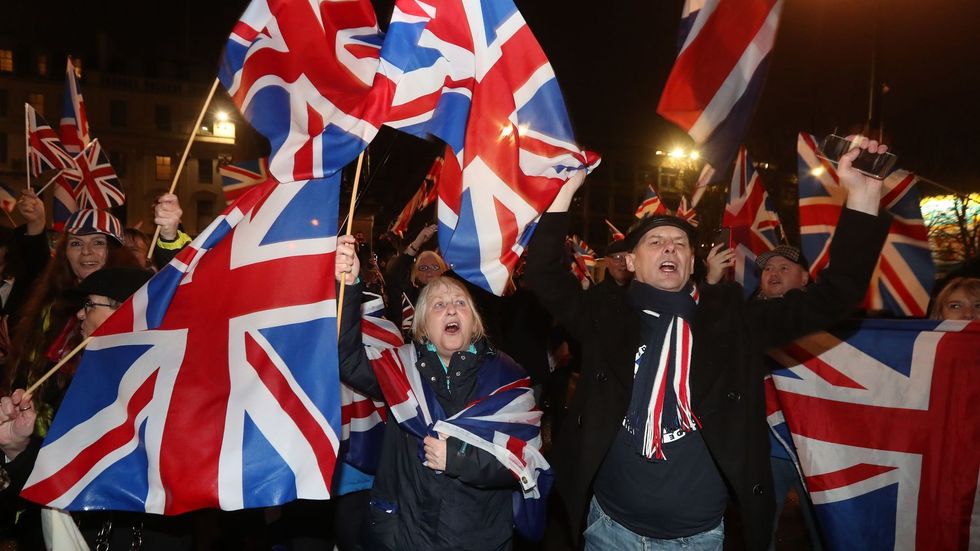Nigel Farage hits out at 'pathetic' Boris Johnson as Reform UK leader …
GB
Labour commands a decisive majority in Parliament but the battle lines have not changed since the 2019 General Election, Britain's top elections guru tells GB News
Don't Miss
Most Read
Trending on GB News
Keir Starmer's majority is more hollow than you might think as Labour's working-class voters have not returned to the party since the Red Wall crumbled more than five years ago, according to Britain's top elections guru.
John Curtice's assessment of the current political makeup of the country comes on the fifth anniversary of Brexit when Britain left the bloc in a historical moment that upended the left-right divide.
Campaigning on a promise to 'Get Brexit Done" in the run-up to the 2019 General Election, then-Conservative Prime Minister Boris Johnson won an 80-seat majority by turning Red Wall seats blue for the first time.
Two Conservative Prime Ministers later, and Labour is back in power after winning a decisive majority last year. However, Starmer's landslide was described as "loveless" as the party secured only 121 seats, marking its worst performance ever and a loss of 251 seats compared to the previous election when the hugely unpopular Jeremy Corbyn was at the helm of the party.

Voting patterns have barely shifted since Boris Johnson's thumping victory in 2019
GettyIt was, therefore, a historic defeat for the Conservatives but not a win for Labour, as voters rushed to third parties such as the Lib Dems and Nigel Farage's Reform UK.
This does not bode well for Starmer as Farage - the chief architect of Brexit - is in the ascendant and enjoying higher favourability ratings in the polls than the PM himself.
As Curtice explains to GB News, voting patterns have barely shifted since 2019.
"Labour were not particularly successful at winning over Leave voters. Their vote is still – depending on what estimate you look at – somewhere between 75 and 80 per cent pro-EU and the proportion of Labour's vote that comes from Leave voters only went up by about four or five points," he said.
The polling guru added: "In terms of its character, Labour's vote changed less than any of the other parties."
As he explains, although Labour's vote share in Red Wall constituencies will be less pro-EU than in London, it's still more pro-EU than anti.
This suggests that the working-class leave voters who deserted the party en masse in 2019 have not returned, making Starmer's position precarious.
Furthermore, the pro-EU folk might be more committed to rejoining the bloc than ever, but they are not necessarily signed up for the ever-closer union agenda, Curtice notes.
LATEST MEMBERSHIP DEVELOPMENTS
- REVEALED: Shock graph shows EU had Britain over the barrel with multi-BILLION raid of OUR money pot
- REVEALED: Five HUGE Brexit benefits the UK has enjoyed since leaving the EU
- Labour's great pension heist is here! Let me reveal the winners and losers - Lady Judith McAlpine

tHE working-class leave voters who deserted Labour en masse in 2019 have not returned
PAIndeed, British Social Attitudes data suggest that scepticism about the EU is still widespread – nearly half of those who would vote to be part of the EU would like the institution to be less powerful than it is at present.
As Curtice explains, that is potentially a "rich seam" for the pro-Brexit side to mine.
Given that opinion polls put Reform neck and neck with Labour in its traditional heartland, this does not auger well for Starmer.








